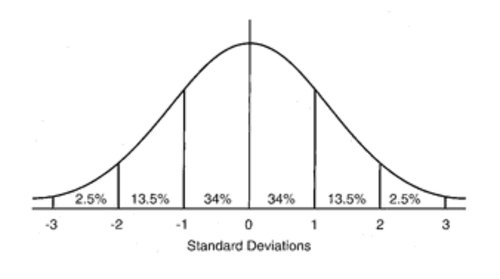In this comprehensive article I want to outline how a thorough Comprehensive Blood Chemistry (CBC) can be one of the main starting and ongoing assessments used to get an overview of your current state of health and to guide decisions about your health, nutrition and lifestyle habits.
Within the article you will find the answers to the following questions:
- Why have a CBC?
- Why different practitioners may come to different conclusions?
- What markers should you look to include?
- Why use lab data to support your health journey?
- What do the different reference ranges mean?
- What considerations are there to ensure you get an accurate CBC?
At the end of the article I will introduce my comprehensive wellness and nutrition profile for those of you interest in performing a comprehensive review of your health and nutrition status.
Why have a CBC?
If there is one test I love all my clients to have before coming to see me or I encourage all clients including myself to do on a yearly basis, it is a CBC.
A CBC provides objective, measureable and reliable data that looks at multiple systems in the body. With a well interpreted CBC you can obtain information about blood sugar regulation, kidney function, liver function, immune health, cardiovascular health, oxidative stress, nutrient insufficiencies, inflammation, digestive function and more.
One of the other reasons I love CBC’s is because they are a universally accepted language amongst numerous practitioners and there is a wealth of research behind all of the markers.
Who interprets your test can determine the value of it
Different practitioners are looking at different tests for different reasons. A doctor may interpret your blood chemistry and see nothing wrong with the results, you come back “normal” for all markers.
However I may look at those exact same results and be able to pick up patterns or out of optimal reference ranges that may tell us something interesting about your physiology.
The main difference between the two people interpreting the results is one is looking for disease and one is looking to optimise health.
There is not right or wrong, just two different schools of thought and to different pairs of eyes looking over your results, ultimately leading to different conclusions.
What makes up a good CBC?
A good CBC looks at a number of different areas. I always include in mine the following minimum markers:
- Chemistry – Enzymes, electrolytes, wastes, proteins (includes information on liver, kidney and adrenal function).
- CBC with differential – red blood cells and their indices, white blood cells, platelets.
- Lipids and glucose markers – cholesterol, triglycerides, glucose.
- Thyroid Panel – TSH, freeT4, freeT3.
As a nutritionist I usually recommend the following additional nutrient markers as well:
- Red blood cell mineral levels
- Vitamin D
- Iron & Ferritin
The reality is there is no one perfect lab test, they all have pro’s and con’s and likewise there is no one perfect list of markers you can run to get a picture of overall health, however many CBC’s that I see ran are far from comprehensive and few conclusions can be draw when minimal markers are ran.
Ultimately the more markers that can be ran the more pieces of the jigsaw you are able to put together.
The Steve Grant Health CBC is mostly suitable for the population of clients that I work with, my skillset and is a great starting point for a thorough CBC for the majority of the population.
What is the main purpose of lab testing in general?
- It provides objective data to use along side data collected in relation to that individuals health history, lifestyle, nutrition and current health symptoms.
- It helps to guide recommendations and to reduce uncertainty, improving clinical outcomes.
- It can be used to evaluate progress and the effectiveness of a given protocol.
My job as a Nutritionist trained in Functional Medicine with an ability to interpret CBC’s is not to diagnose or treat disease or illness but to assess someone’s physiology and look at nutrition and lifestyle adaptations that they may be able to make to optimise their physiology.
What do reference ranges mean on your comprehensive blood chemistry?
The reference ranges can be seen as the clinically most important aspect of interpretation. The reference range will often determine the diagnosis and the intervention strategy.
The statistics are derived from numerical ranges based upon a sample population. Generally these statistics are from patients within a specific geographical location. A mean of all the results is created and calculations are made to determine the deviations from the mean.
Example Gaussian distribution curve
Shortfalls with norm reference ranges
The norm reference ranges are based upon 95% of the population, thus the top 2.5% and bottom 2.5% will be seen as out of the “norm” reference range.
The trouble with this system is as follows:
- These norm ranges are often a result of data collected from individuals with undiagnosed diseases and subclinical health issues. Thus what is deemed as normal is often far from optimal.
- Reference ranges may change and a lot of the ranges are based upon out of date data.
Conventional norm reference ranges vs optimal reference ranges.
As discussed previously the purpose put on most CBC’s is to help identify disease states. People either fall into a category that allows them to be labeled with a disease or a condition and if not they are normal, it is all very black and white.
Optimal reference ranges is not something you will see on standard lab testing but can be very beneficial in the prevention of progression into disease states.
For example if I see a high normal fasting glucose and HbA1c, I may be able to help that client make specific nutrition and lifestyle changes that help them prevent the progression of insulin resistance and eventual diagnosis of type 2 diabetes.
Comprehensive Blood Chemistry – Considerations before your blood draw
There are many things that can skew the results of a Comprehensive Blood Chemistry (CBC) and ultimately prevent an accurate picture of your results.
Some issues can be out of your hands such as laboratory error (equipment, human error, calibration, sample preparation etc).
There are also many things within your control that can potentially interfere with the accuracy of your CBC results, for example:
- Medications – some medications may skew results. You should however never come off medications prior to testing without consent from your GP and only if 100% necessary.
- Exercise – Exercise will have negative effects in liver enzyme markers, leading to false elevations due to tissue destruction from intense training. It also has the potential to skew numerous other markers. I recommend no intense exercise for at least 48hours prior to testing.
- Alcohol – Similar to exercise this will acutely affect the liver enzyme markers.
- Not fasting when you should be fasting – This will affect glucose and triglyceride markers, preventing a good look at glucose and lipid metabolism.
- Extreme diets – ketogenic diets, low calorie diets can all impact the results of a CBC. I will generally not recommend any changes in diet prior to testing as I want to see the effect of current diet on the blood chemistry.
- Supplements – Some supplements can skew results, the choice will be made prior to testing if the goal is to test with the influence of supplements or without.
- Hydration status – A lack of water and overhydrating prior to the test can skew the results. I usually recommend 1-3 glasses of water the morning of the test if fasting overnight and having the test early in the morning.
Pre CBC testing considerations
- No alcohol at least 48 hours prior to testing.
- No intense exercise at least 48 hours prior to testing.
- Drink 1-3 glasses of water the morning of the test.
- If it is a fasting test the absolutely nothing but water upon waking until after your blood has been taken.
- Check with your practitioner about your medications or supplements and whether they will affect the outcome of the results.
For more information about discounted and individualised blood chemistry analysis available through me, please contact me using the form below.
Contact Steve Grant Health
To learn more out how Steve Grant Health can assist you on your journey, please fill out the enquiry form below.
Please note that depending on your specific circumstances and goals, Steve may recommend that you work with one of the specialist practitioners within his network of trusted professionals.
If you have been referred by a clinician, please complete the form and ensure that you state who has referred you or have your practitioner email Steve direct to make a referral that way.
Click the button below to open the client enquiry form:
[widgetkit id=”643″]

















